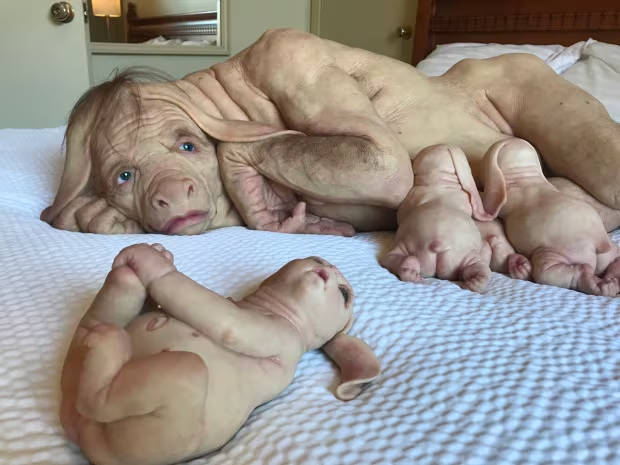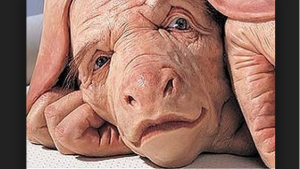In a groundbreaking yet deeply controversial scientific achievement, researchers have successfully created the world’s first human-pig hybrid. This monumental experiment, intended to revolutionize medical research and organ transplantation, has sparked intense ethical debates and concerns about the future of genetic manipulation.
The Experiment
The pioneering research was conducted by a team of geneticists at the renowned BioGenetics Institute. Their goal was to create a chimeric organism that could potentially grow human organs for transplantation. Using advanced CRISPR gene-editing technology, the scientists injected human stem cells into pig embryos. The resulting embryos, which contained a mix of human and pig cells, were then implanted into surrogate sows.
The Breakthrough
After several weeks of development, the researchers successfully produced viable human-pig hybrid embryos. These chimeras developed normally and were observed to have human cells integrated into their various tissues and organs. Dr. Emily Warren, the lead scientist on the project, hailed the experiment as a major milestone. “This is a significant step forward in our ability to grow human-compatible organs in animals,” she said. “It holds immense potential for saving countless lives.”
Potential Benefits
The creation of human-pig hybrids could address the critical shortage of donor organs. Thousands of patients die each year waiting for transplants, and lab-grown organs from chimeras could provide a nearly limitless supply. Additionally, these hybrids could be used to study human diseases in ways that were previously impossible, leading to new treatments and cures for a range of conditions.
Ethical Concerns
However, the experiment has ignited a fierce debate over the ethical implications of creating human-animal hybrids. Critics argue that mixing human and animal genes crosses a moral boundary and raises questions about the nature of humanity. Bioethicist Dr. Karen Phillips voiced her concerns: “This research opens a Pandora’s box. We need to carefully consider the long-term consequences and the moral ramifications of creating beings that are part human and part animal.”
Animal rights activists are also alarmed by the potential suffering and exploitation of the animals involved. They argue that creating chimeras for the sole purpose of harvesting organs is inhumane and unethical. “We are playing God with the lives of these creatures,” said animal rights advocate Lisa Turner. “It’s a slippery slope that could lead to further exploitation and abuse.”
Regulatory Response
In response to the controversy, regulatory bodies around the world are grappling with how to oversee and regulate this emerging field. Some countries have already banned the creation of human-animal hybrids, while others are considering stringent guidelines to ensure ethical standards are maintained. The debate is likely to shape the future of genetic research and biotechnology for years to come.
Public Reaction
The public reaction has been mixed, with some people expressing awe and excitement about the potential medical benefits, while others are deeply uneasy about the ethical implications. Social media platforms are buzzing with discussions, memes, and heated debates about the experiment. Polls indicate that while a significant portion of the population supports the research for its potential to save lives, there is also considerable opposition.
The Future of Chimeras
Despite the controversy, the BioGenetics Institute plans to continue its research, with hopes of refining the technology and addressing ethical concerns. Dr. Warren and her team are committed to ensuring that their work adheres to the highest ethical standards and contributes positively to medical science. “Our ultimate goal is to alleviate human suffering,” she stated. “We are dedicated to conducting our research responsibly and transparently.”
Conclusion
The creation of the world’s first human-pig hybrid marks a significant scientific breakthrough with the potential to transform medicine. However, it also raises profound ethical questions that society must grapple with. As researchers continue to explore the possibilities of genetic engineering, the balance between scientific advancement and ethical responsibility will be crucial. Stay tuned for more updates on this groundbreaking and controversial field.







